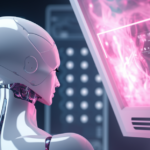- The US House’s New Democrat Coalition established an AI working group to craft comprehensive AI policies.
- AI’s role in reshaping democracy emphasizes both its challenges and potential for bolstered democratic processes.
- Ensuring AI’s integration aligns with democratic goals is vital for trust, authenticity, and future progress.
In a move reflective of the increasing importance of artificial intelligence (AI) in today’s society, the US House’s New Democrat Coalition, consisting of 97 members, has taken a decisive step to understand and navigate the complexities of AI. On August 15, they announced the formation of an AI working group, aiming to collaborate with the Biden administration, and stakeholders across the political spectrum to establish comprehensive AI-related policies.
This strategic move aims to harness the growth potential of AI without sidelining the workforce, ensuring those potentially affected by AI advancements remain employed. Notably, Representative Derek Kilmer will spearhead this working group, emphasizing the need to curb the proliferation of AI-driven misinformation. With the rise of sophisticated AI-generated deepfakes, Kilmer voiced concerns, saying, “There’s real concern about the potential for AI generated disinformation.” This sentiment resonates with several lawmakers, academics, and tech CEOs, amplifying the call for regulation.
Earlier this year, the administration had already shown concern, with both Vice President Kamala Harris and President Biden meeting AI industry leaders and experts to discuss the challenges and promises AI brings to the table.
AI’s Potential to Reshape Democracy
The conversation about AI isn’t confined only to its challenges; it also spans its potential to reshape democracy. As we delve into the 21st century, the use of AI in politics could either be the bane or boon for democracy.
About 25 years ago, the internet promised a utopian vision, championing the cause of decentralization and a rebooted democracy. David Bowie, in a 1999 Newsnight interview, had prophetically commented on the potential transformative power of the internet, which today finds its parallel in AI. However, today’s digital reality is far from that initial utopian dream, with truth and trust being frequent casualties in the information age.
Yet, with AI, there’s a renewed optimism. The right checks and balances can harness AI’s power to bolster democracy. Platforms like Polis, used extensively in Taiwan and even in the UK, have showcased the potential of AI in shaping policies, gauging public consensus, and promoting dialogue. By prioritizing verified information, AI can potentially simplify complex data, making it more accessible. Such innovations could revamp the relationship between citizens and the state, introducing elements of direct democracy and better public service targeting.
However, the current trajectory is commercially driven. Investment patterns are directing AI development, often neglecting the larger goal of common good. As Labour peer Jim Knight pointed out, current legislative actions concerning digital spaces often overlook the imperative of protecting democracy, focusing more on online safety and data protection.
The Future of AI in Democracy
The synergy between AI and democracy is at a crossroads. While AI holds the potential to revolutionize democratic processes, unchecked, it can also erode the very foundations of trust and information authenticity. There’s an urgent need to marry technological advancements with democratic goals, ensuring that our system remains relevant in a rapidly evolving world.
The House Democrats’ move to establish an AI working group underscores the importance of being proactive. As AI continues to integrate deeper into our daily lives, it is crucial to remember the lessons of the past and ensure that technology and democracy evolve hand in hand for a better future.










![Fei-Fei Li and a technical future - NewsBites.AI [Fei-Fei-li picture] looking optimistically into a technical future. Optimistic. Hopeful. Happy. Productive. --ar 16:9. Image courtesy of Midjourney, used with permission. All rights reserved.](https://newsbites.ai/wp-content/uploads/2023/05/Fei-Fei-Li-futuristic-1-150x150.png)
